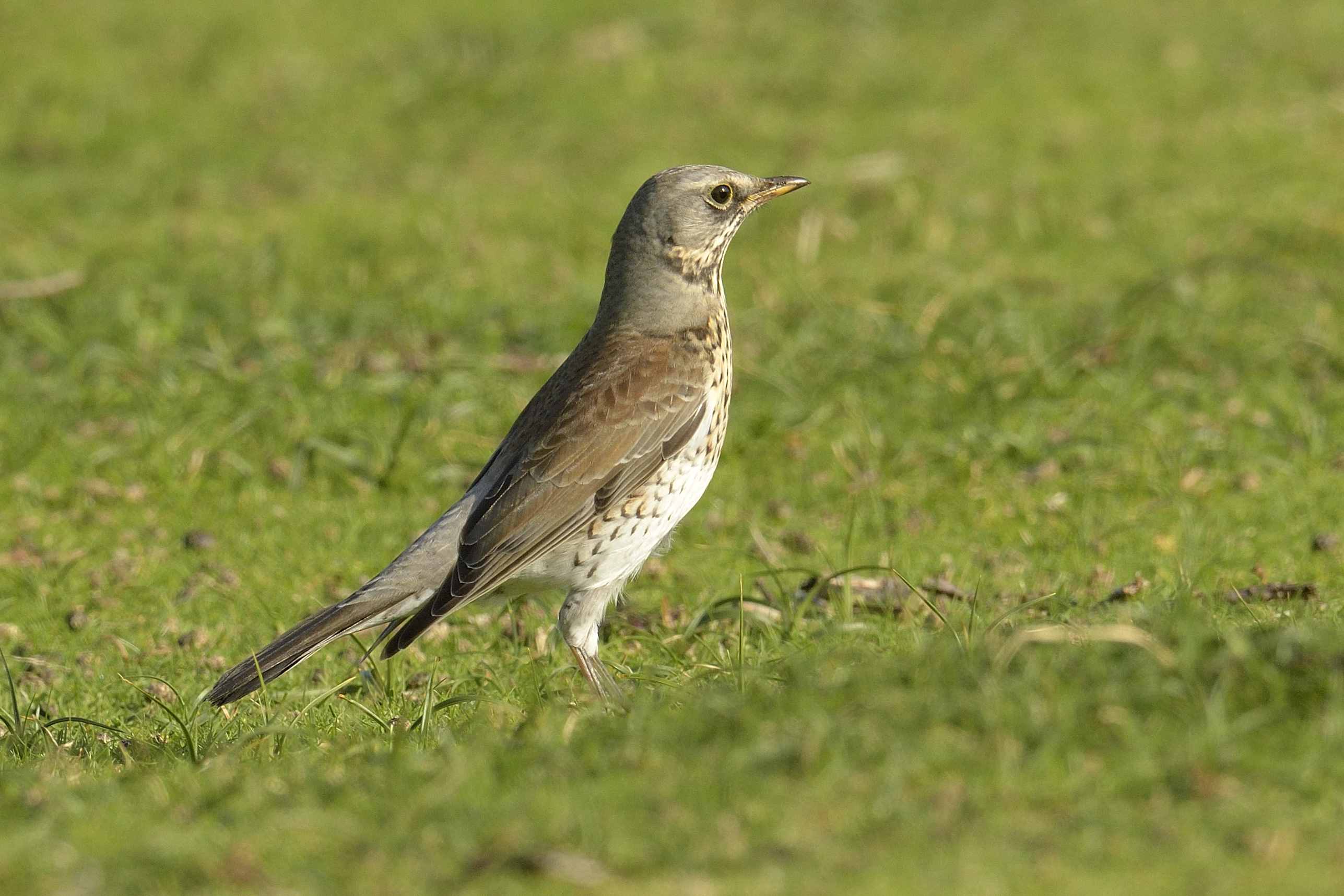Sickleholme Nature Notes
I seem to recall a rhyme that ran something like “No leaves, no sun, no light, November” and, sadly, that seems to sum up November 2018 when much of our weather could best be described as mild but unpleasant. The course certainly lost most of its colour, as the russets and gold of October turned to a rather drab grey, and we saw more rain than we have for months.
Wildlife reports were inevitably fewer, although I did receive several queries about the flocks of Fieldfare which were regularly seen and heard overhead. These were partly a group of about 80 that regularly sort out the berries around the course, and partly a continuous stream of migratory birds heading mainly south-westwards. A migration watch on one of the local moors produced a count of some 1200 moving through on one date early in the month. At Sickleholme, their presence was regularly advertised by their contact calls (sounding like a loud chuckle).
Fieldfare (see image) are large thrushes and about the size of our resident Mistle Thrush but larger than Blackbird, Redwing and Song Thrush. Except for the latter, all of these thrushes could be seen around the course during the month. Fieldfare and Redwing are winter visitors from Scandinavia and western Russia, whilst the other three species are here all year albeit that winter numbers are supplemented by incoming continental birds who find our climate warmer than their own breeding areas.
Other bird species that were reported included Buzzard, Kestrel, Pheasant, Jay, Jackdaw, Long-tailed Tit and a selection of commoner species that make use of the clubhouse feeders. Grey Squirrels were seen collecting food for winter stockpiles, the only wildflowers noted were a couple of lonely Daisies and even the fungi started to disintegrate and look less attractive than a few weeks earlier.
Happily, with plenty of berries still and cover in the ravine and pines for roosting, there should still be plenty of wildlife to see in December, but a few brighter days would certainly help.
Bryan Barnacle


